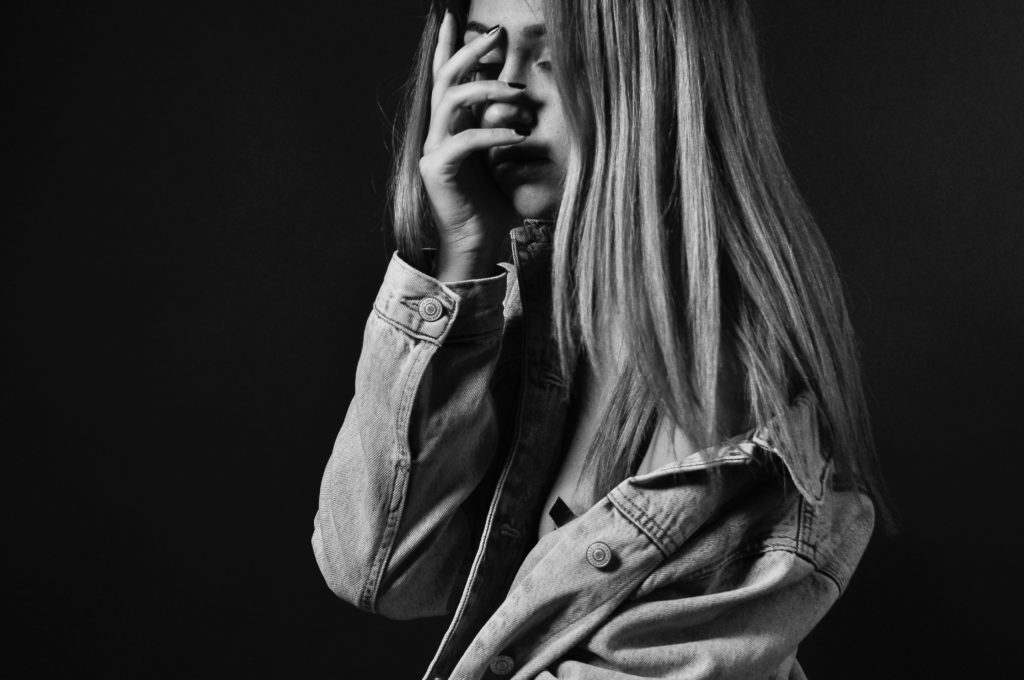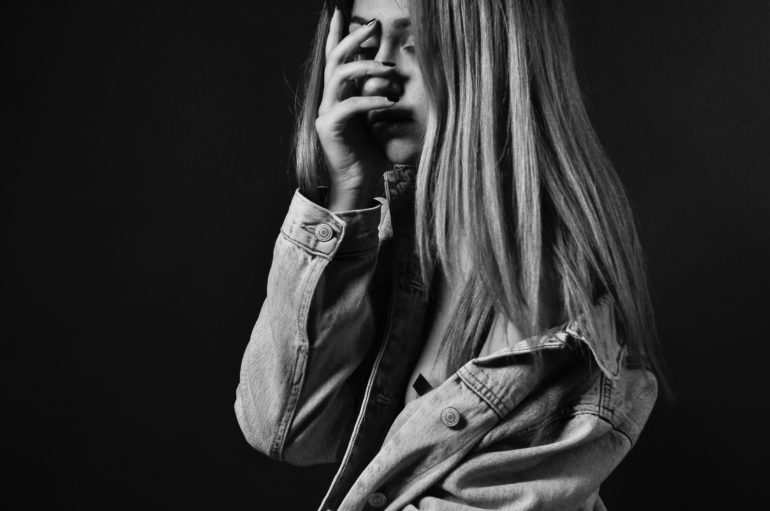Ceryn opens up about coming out ‘late’ and her struggles as a femme bisexual to comfortably identify as queer

At the ripe old age of 24, I did not expect to still be figuring out my sexual identity. Until July last year, I was in a committed five-year relationship with a man and was relatively sure I was straight.
Around 18 months ago I was quite surprised to discover I might like women as well as men or maybe only women and basically everything I thought I knew about myself thus far was very, very wrong – I’m working on it.
After a pretty confusing year, I now know that I am a queer woman. But, I still don’t know how to label myself beyond that or if I even need to. I want to belong within the queer community – a community I strongly identify with and care for deeply – but I feel like I need to earn my place within it, which sounds a bit ridiculous when I say it out loud but internally I’m battling with deep-rooted queer imposter syndrome.
I am a girl who likes girls, it’s as simple as that
Imposter syndrome generally is defined as, “The persistent inability to believe that one’s success is deserved or has been legitimately achieved as a result of one’s own efforts or skills,” according to Google. Sufferers experience feelings of self-doubt that can leave them fearing that they will be exposed as a ‘fraud’.
Apply those feelings to sexuality and you get how I and so many other queer womxn feel when they first come to terms with their newfound sexual identities. We feel like we don’t deserve to identify under the LGBTQ+ umbrella. For me, this is because I don’t feel ‘gay’ enough – I haven’t experienced any of the tragedy that is so often associated with queerness.
I didn’t have to brave the turmoil of ‘coming out’ in my teens, I am fortunate to have parents that will always love and support me no matter what and I’m surrounded by a strong network of gay friends and allies in a very liberal part of the world. I don’t frequent gay bars, I’ve never celebrated pride and there’s not a single rainbow to be found in any of my social media bios.
That’s not to say I don’t want any of this, I just don’t feel like I’m eligible to claim it which is crazy because… I am a girl who likes girls, it’s as simple as that!
When it comes to situations where I have to label myself, I really face the imposter syndrome head-on. I spend way too long stressing over the ‘sexual preference’ section on forms, for example. My hand freezes and my pen hovers between ‘lesbian’ and ‘bisexual’, then I’ll completely regress and want to tick ‘heterosexual’ – and back again until I settle on ‘prefer not to say’. I know I’m not straight but I don’t feel like I have the right to claim my queer identity either.
Being queer shouldn’t be associated with pain and struggle
People who identify as straight are not under the same pressures to prove their sexuality even if they’ve never been on a date! So, why is it that as a queer woman who is relatively inexperienced I crave the approval of others within the community? And, why do I feel guilty for having been with men in the past?
I’ve been on a few dates with women and at this point in my life, I have no real desire to pursue another relationship with a man. But, I can’t guarantee how I’ll feel in five, 10 or 20 years from now especially considering this time two years ago I’d never really considered my sexuality as anything other than straight – I was raised straight and I assumed as much until proven otherwise. I definitely struggle with internalised homophobia from growing up surrounded by straight friends and family in a country that teaches its children about love and relationships as inherently straight, which doesn’t help.
Anxiety surrounding our own queerness is extremely common, particularly among femme womxn and perhaps even more so among bisexuals. We fear being invalidated and disbelieved for not being, or at least presenting, ‘gay’ enough. I’m terrified that I will appear to those already within the community as if I’m ‘jumping on the bandwagon’ so to speak – especially at a time when celebrities like Jameela Jamil are receiving so much backlash after coming out later in life.
I’d like to think that a ‘we’re all in this together’ motif is the overarching attitude within the LGBTQ+ community but I definitely get the feeling that the more ‘gay’ you appear and the earlier you step out of the closet, the more deserving you are to identify. But, being queer shouldn’t be associated with pain and struggle.
I’m not technically ‘out’ yet – well, I haven’t shouted it from any rooftops or had a tensely emotional conversation with my parents – but I’m open with my close group of friends, half of whom identify as queer which makes things easier. It’s an ongoing process and any queer person will agree that we will be ‘coming out’ for the rest of our lives anyway.
So, if you feel like an imposter, fear not, it’s normal and expected but ridiculous! The ‘queer community’ is a figurative entity, you don’t need to meet specific entry requirements or know the secret password to get in. Sexuality exists on a spectrum and wherever you land on it is your business and can only really be validated by you.

